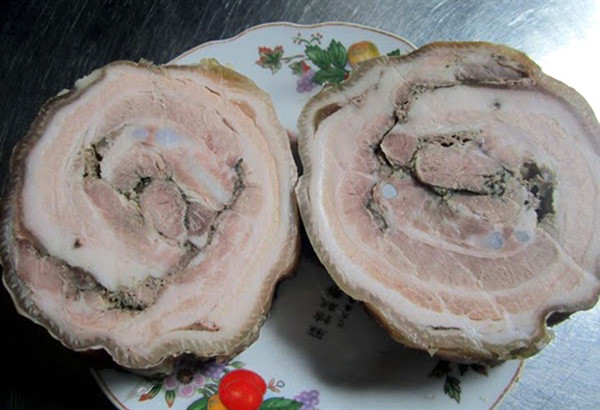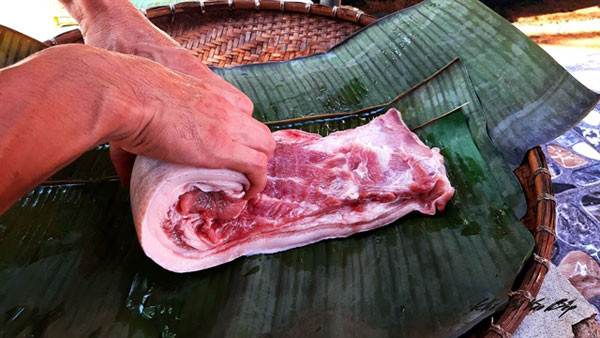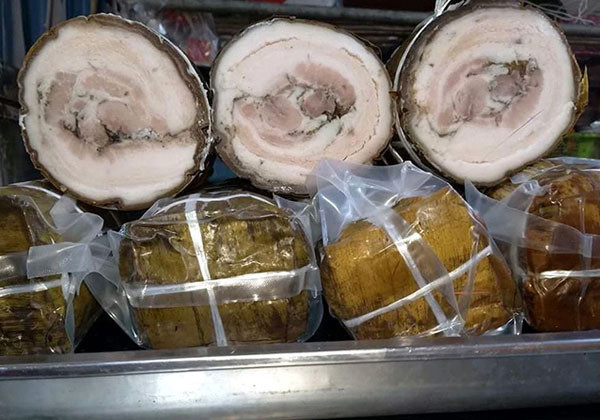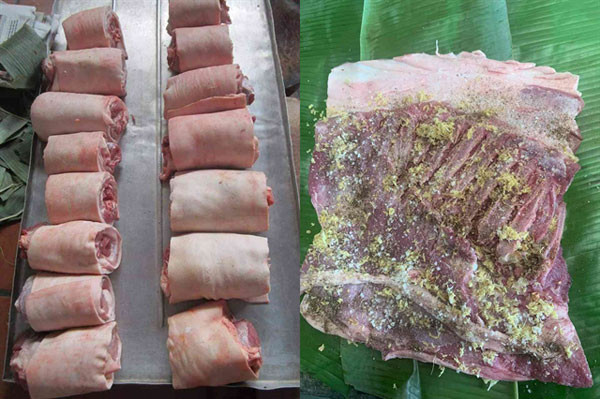Thai Binh Province is not only known far and wide for its bánh cáy (traditional cáy cakes) but also giò nây made of pork belly wrapped in banana leaves.
My relative named Tran Thi Huan from Thai Binh’s Quynh Giao Village of Quynh Phu District, recently visited my home in the capital, bringing some pieces of giò nây.

We’ve eaten different types of giò (boiled pork or beef paste) and chả (grilled pork or beef paste) but it was the first time we enjoyed giò nây.
The dish is fragrant and has savoury and buttery taste from the meat, hot from peppers and quality fish sauce as well as a special flavour from banana leaves.
The dish is more enjoyable when being eaten with pickled onions or pickled broccoli.
“Giò nây is a particularly suitable dish for bar snacks such as sipping it with a cup of local home-brewd rice wine,” said my grandfather, likes the dish so much.

Huan said to have tasty giò nây, she has to choose a piece of organic pork belly, sized 30cm by 30cm or larger. “First of all, I have to clean the meat very carefully and use tissue paper to absorb water from it," Huan told Việt Nam News.
"I marinate the meat with dried onion mix with fish sauce and pepper for an hour before wrapping it in banana leaves.”
Giò nây should be boiled for four to five hours over medium fire to ensure that it’s quality and strong aromatic flavour.

After boiling, giò nây should be taken out of the pot, and let it cool for half an hour before pressing it to reduce any water left from the dish while helping ingredients inside soak together.
Giò nây has become a special treat for Tet (Lunar New Year) parties of many local households. They often cut the meat into rectangle shapes and dip in a sauce mixed with minced garlic, fish sauce and fresh chilli, Huan said, adding that the dish can be kept in refrigerator for ten days.
The dish is more enjoyable when eaten with pickles, so local housewives often prepare salt and onions since the middle of the 12th lunar month to make pickles.

"In the past the dish was only a traditional treat of Thai Binh residents and it would be strange to city dwellers, but now it has been presented on a meal tray of people across the country’s three regions," said Huan.
“Last Tet I produced several hundreds kilograms of giò nây with prices ranging from VND300,000-350,000 per kilo,” she said.
"One of her regular customers in Hanoi said that her family members, particularly her elderly parents were interested in the dish due to its rich flavour, buttery fat and melt in their mouth taste."
“It becomes our indispensable dish at our Tet party," Huan added.
Source: Vietnam News